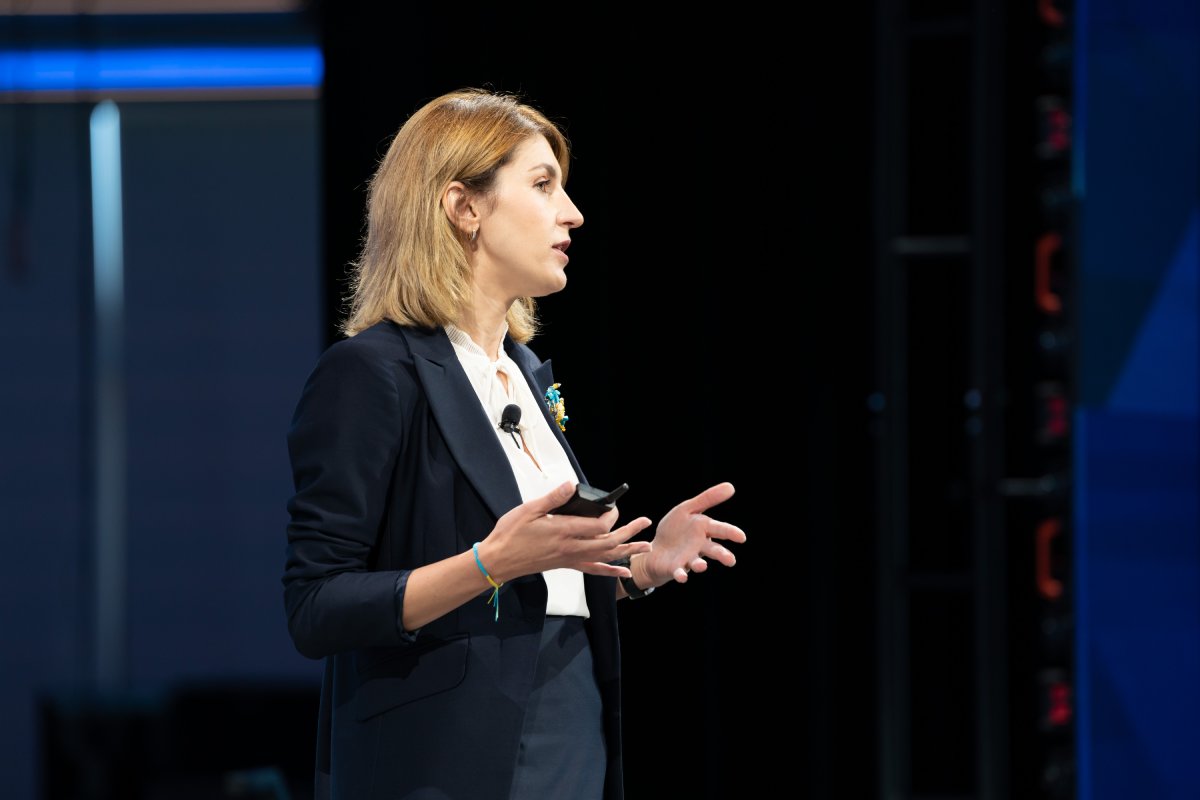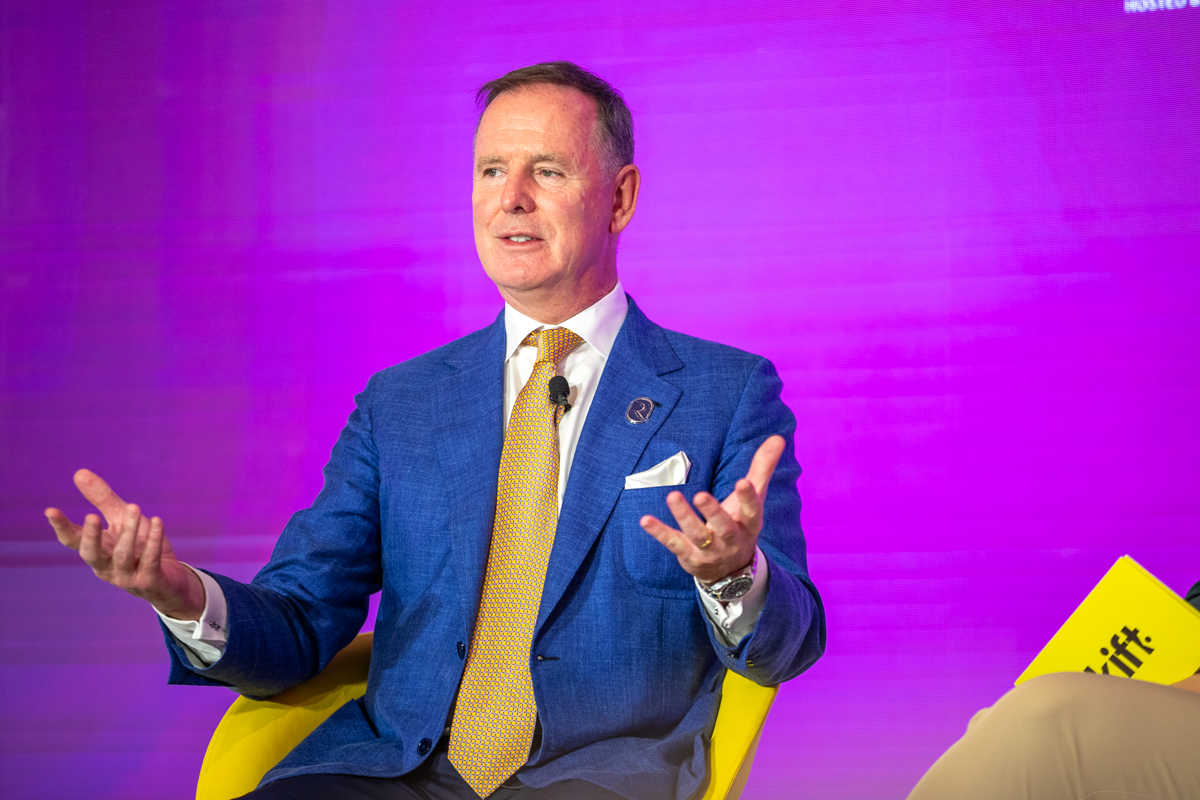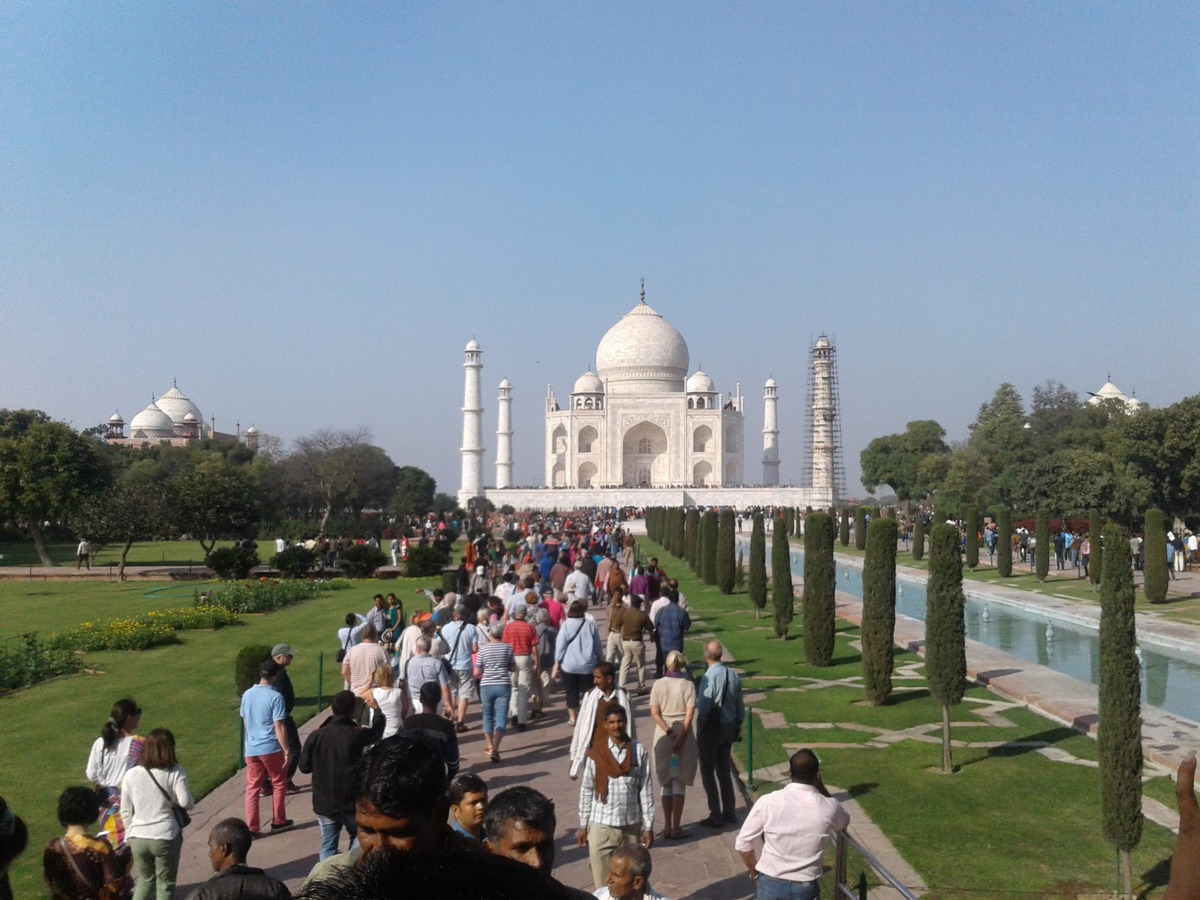Ukraine's Tourism Chief Reflects on Resilience After a Year of War

Skift Take
It’s been over a year since Russia invaded Ukraine. The war has had ripple effects on the global tourism economy. Ukraine and its tourism sector have suffered immensely in lives, infrastructure and more, but after a year into the conflict, they are seeing some bright spots.
While international travel remains closed, Ukraine is seeing a gradual recovery in domestic travel, especially in its Western region. Domestic travel sits at 50 percent of its pre-pandemic level. The tourism agency is promoting travel internally and working with international tourism businesses to support its recovery.
In this conversation with Skift at ITB Berlin, Mariana Oleskiv, chairperson of State Agency for Tourism Development of Ukraine, talks about what’s changed and hasn’t changed for Ukraine's tourism sector since the war started last year. This conversation has been edited for length and clarity.
Skift: The war actually started in 2014 when Russia annexed Crimea. In 2022, Russia launched a full-scale invasion of Ukraine with the help of Belarus. Can you go into the disruption the 2022 invasion caused?
Mariana Oleskiv: Yeah. So first, of course, there was to stop all air connection with Ukraine on February 24th night of 2022. International travel stopped. But we still had journalists, international organizations, some missions. So last year, we had two million international visits to Ukraine. So, comparing to 2021, we had four million, but it was a Covid year. In 2019, we had, if I'm not mistaken, nine million.
In 2014, we had 14 million, so this was the numbers of visitors crossing borders. Of course, a lot of these people who crossed our borders in 2014 were Russians, and then we lost that market, obviously. We stopped any cooperation and tourism with Russia. Until this full-scale invasion, a lot of their citizens were crossing borders with neighboring areas to visit relatives. And Belarus was a big market before this full-scale invasion. And then, others, we've had Poland, Turkey, Azerbaijan, Israel, Germany, United States, France, Italy, and then we worked with Saudi Arabia in 2021. They were a big market for us in terms of tourism because we made visa free for them, and that was our big plan for 2022.
So our main focus started being domestic travel. Starting the summer of 2022, we launched this little campaign that was, "Get Inspired by Ukraine" for local market. That we are fighting, we are working for the victory, but we still need some place where we can breathe and relax and for a little while, maybe don't watch news too much and enjoy the nature, something spend time with the family. And this is what Ukrainian resorts can give you, and that nature, our nature, our lakes, our mountains, our forests inspire you to work hard and to fight.
It was a little bit difficult to launch it because it brings up a little bit of controversial feelings because there are some other people at the front line fighting. So there was also some complaints that some of our guys who are fighting, the military, that were saying, "Yeah, you still have rights to go to the bars and restaurants because we are fighting so that you have normal life, but don't forget about us, donate. And we also need rotations because we are tired. So, also go and check in and go to the army because we need to keep fighting."
We also have, of course, people from tourism industry also fighting at the front line. I have two of my employees now in the army that don't have any military experience before.
Skift: Please talk about the tourism sector's rebuilding efforts.
Oleskiv: Rebuilding is a really very complex word for us now. It's not only infrastructure, and we understand that it's the easiest thing to rebuild. But a lot of people lost their home or something they did, or even a hotel they had, or something that was they built from the scratch, they give their soul into it, and now it doesn't exist anymore. And some cities or towns, they don't exist in anymore, and this is very sad. And we have, of course, we have pretty big country. Comparing to the U.S., of course, it's small, but in the terms of Europe, it's the biggest country of Europe. Most of our regions were not damaged, but some were completely destroyed. When we think about rebuilding tourism, of course we will invite tourists first to go to those areas.
A lot of, unfortunately, destruction was in the eastern part of Ukraine and southern part of Ukraine. For example, there was a very nice town in the Donetsk region with a nice infrastructure of hotels. And now, everything is destroyed. There is none hotel that is not destroyed. But it's still in this gray zone, so we cannot even calculate the losses, because nobody has access there except military so we will need a lot of effort to rebuild. But at the same time, we have Carpathian Mountains where new hotels are and are really nice ones. In one, they did, it's called, "Hay," and they did it very like it's dry grass. They did it in this very sustainable nature way using a lot of wood, and it's really new, this type of luxury hotels where you are close to the nature. It just opened last fall. So one hotel opened in Lviv, Western Ukraine, but it's Best Western hotel, a new one in the city center. So tourism's still in the western and central part of Ukraine. But in general, our industry lost, I think, around 50 percent, actually, of its capacity. And comparing to 2021, that was after Covid years, still the industry didn't operate 100 percent.
Skift: I understand you’ve been stepping up your promotion efforts for the domestic market.
Oleskiv: Yes. Now, we don't have a budget for promoting, because all the budget for governmental goes to other things, of course. But yes, last year, we used different channels. We were promoting on YouTube, Google Ads, Facebook, Instagram, social media. So the thing is, for us in domestic market, we have wider possibilities. So we know all the opinion leaders, we can ask them to do some of the coverage like campaigns for us, and then we have TV also. We can do it like social advertising on TV. There are many possibilities in Ukraine for do the campaign for domestic markets for us, without using budget, actually, for that.
So this year, we understand it's been a full year that we lived during the war. And of course, still controversial. Especially what matters for us is the people that are at the frontline fighting. So their opinion is extremely important for us, because they are our main heroes. Thanks to them, I'm here and I can speak about the future about tourism. So that's why we discuss with them, and they have different opinions. But basically, we also want to have some offers for them, maybe some discounts or something, because they have also vacation. They have leave for 10 days during the year. So they can go with their family to some of Ukrainian nice resorts.
It's difficult to explain. I have a lot of friends, they're fighting, and what they see is something just you don't want to see that, yes? And it will be important to bring them back to life, and I think the tourism can also help when they come back from the front line before they go to this civil life, for them to go to some resorts or some kind of area where they can be away from everything and not to rush into this big city life where everybody's running somewhere after they've seen so much deaths and destructions there. So we are looking also for the way for tourism to be useful in this.
In terms of international travel, what is very important for us now is to build partnership when we will restart tourism. Which platforms we can promote, whether free of charge for this first period of time because we will not make on time the budgeting process, et cetera. And we will need to send this message right away in the time when we have, "Okay, Ukraine is safe to travel." And we need to send this message. So we are looking for partnerships. I'm really grateful for many, many already companies that said, "Yeah, we'll support you guys. We will provide you free advertisement on our platforms after you'll be safe to travel again, after you open your doors."
Skift: I remember at Skift Global Forum last year you called on the industry to step up and help Ukraine’s tourism sector during this difficult time. Has the industry been coming out and supporting Ukraine?
Oleskiv: Yes, we made a lot of partnerships with people I met there, and we signed an MOU with Expedia, for example, yesterday that they will support us in promoting and data.
Also, we talked with Airbnb, and they also will, with many of the cooperations we can do together, especially with data, because data is also very important for us because we need to see whom we could target, what we can sell, if it's efficient. So the data part is as important as the marketing part.
And also, we're looking for everybody who is open for helping Ukraine supporting us because we know that we cannot invite anyone. And how we can support the tourist industry, you can't also give money to the industry yet. Obviously nobody's doing it. But these things we can do later to restart tourism and rebuild tourism in Ukraine that would need a lot of effort, and probably not too much money from the partners, but still, if everyone does a little bit of that then together, we can, I think, do a big nice campaign.
We want to communicate through people, because we think that the bravery of Ukrainian people, that's something that inspires and something that you would come and meet Ukrainian people and help them to revolt the way you can, yes, this solidarity. So by the messages, proper scenarios for videos, this all we need to have ready, and we need to think now in order to start doing it when it'll be time.
Skift: Since it's been a year, anything else you'd like to mention about what's changed, what's hasn't, or possibilities for the future?
Oleskiv: I hope that ... Yes, I really hope that this war will be over this year, I really do hope. We still plan the summer season for domestic tourism. We don't think that we are going to welcome international visitors this summer.
But I really do hope for 2024 that, here in ITB Berlin, we can say the message, "Visit Ukraine. Discover Ukraine. Come to Ukraine." And yes, that's what we hope for and that's what we fight for.




